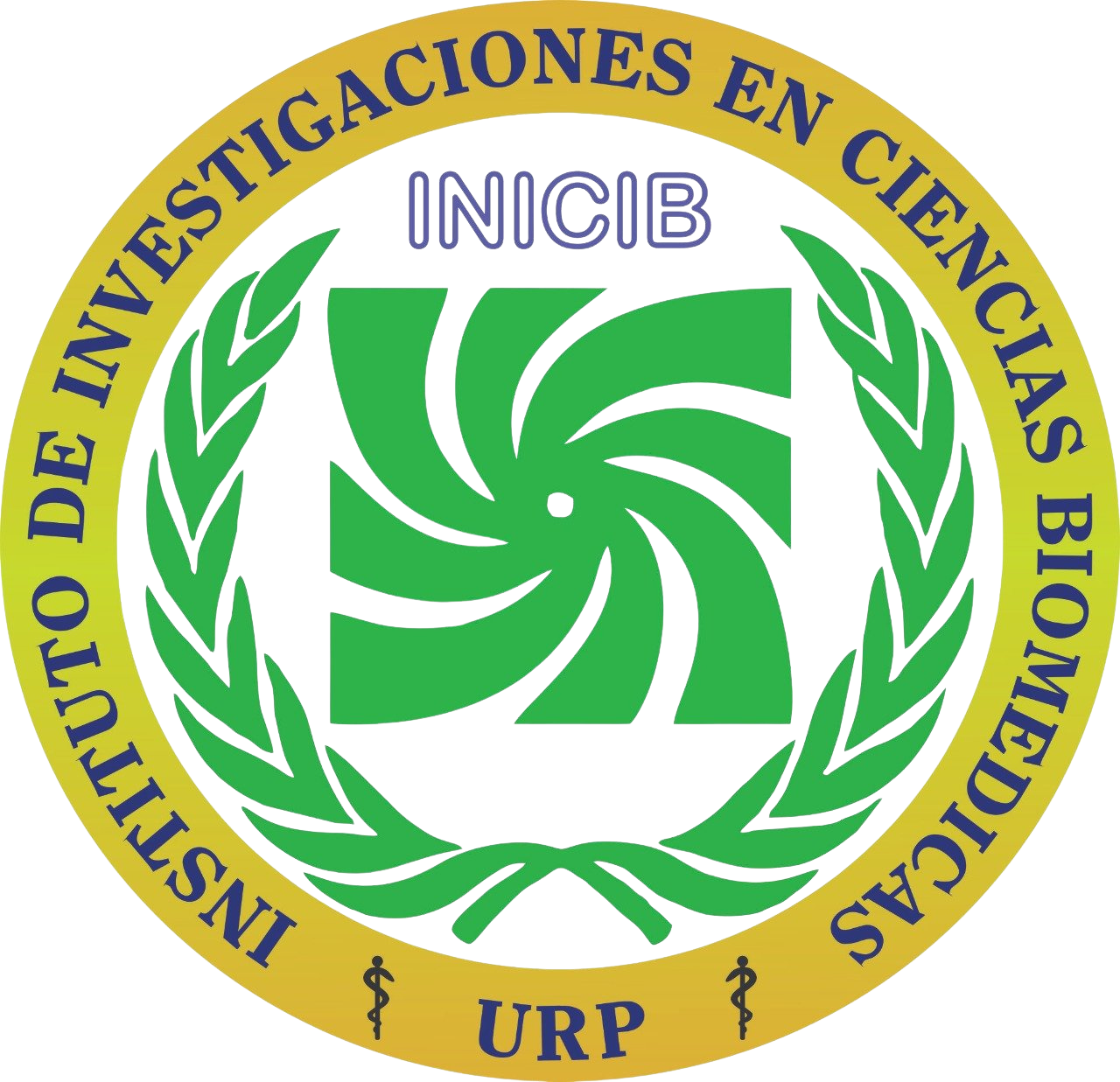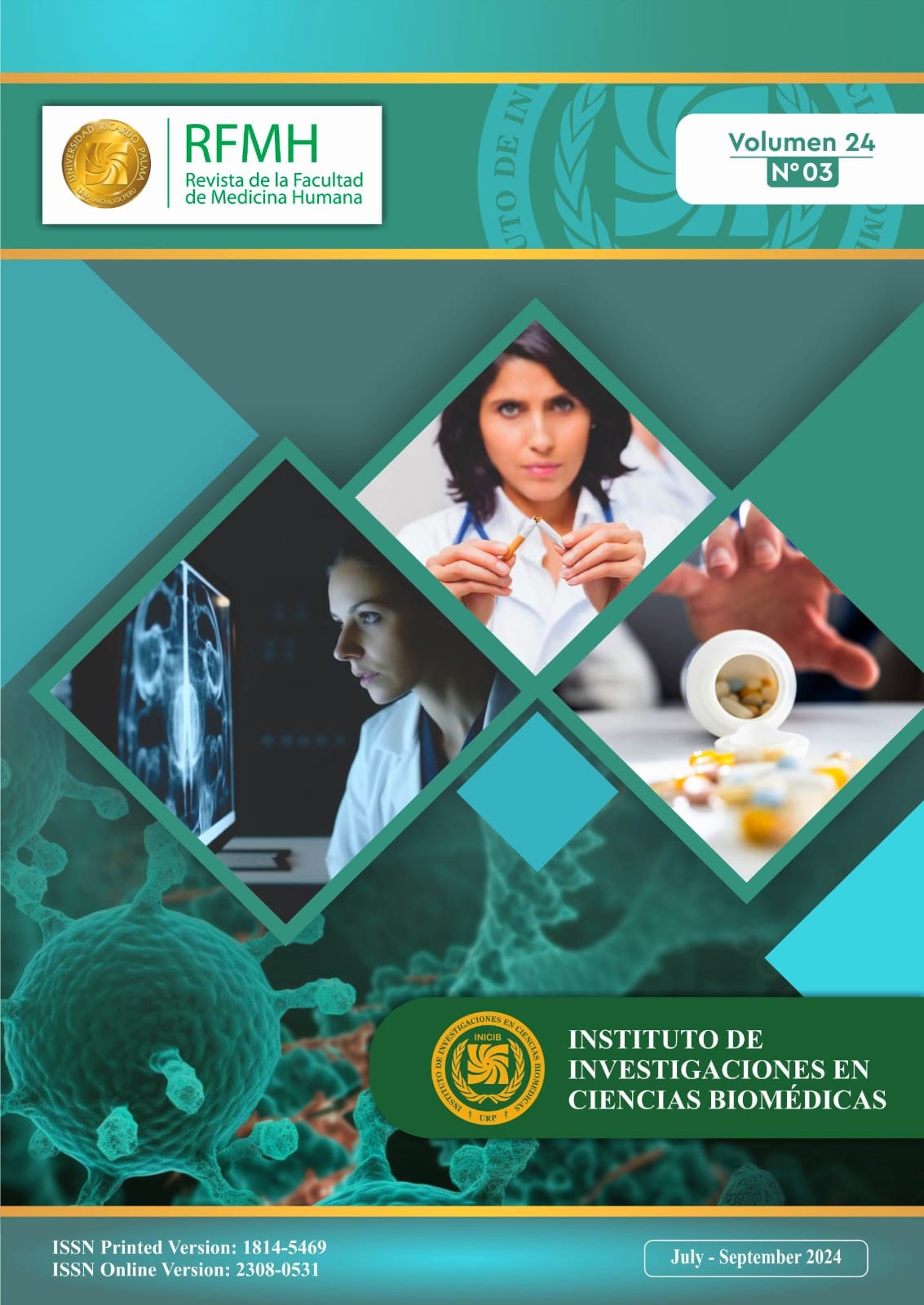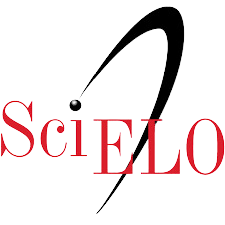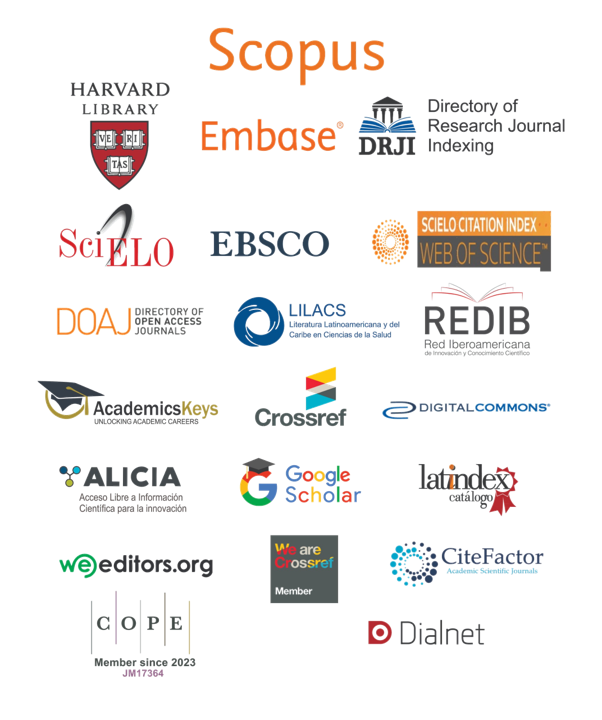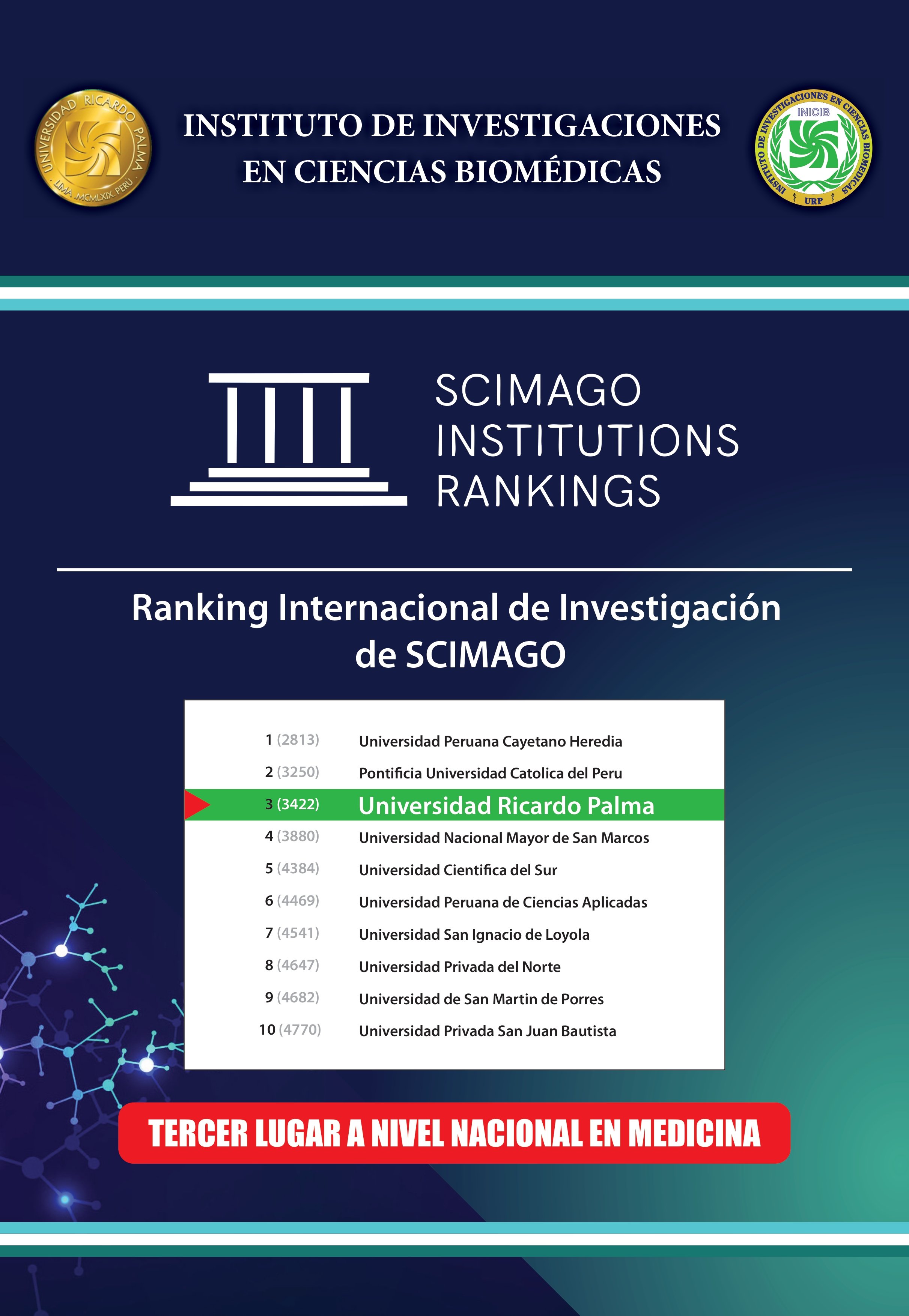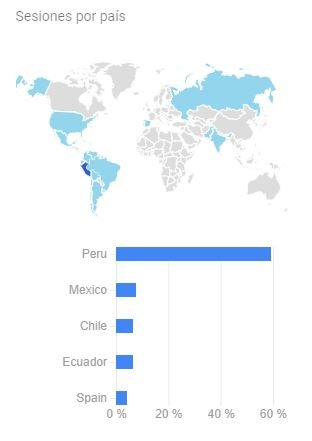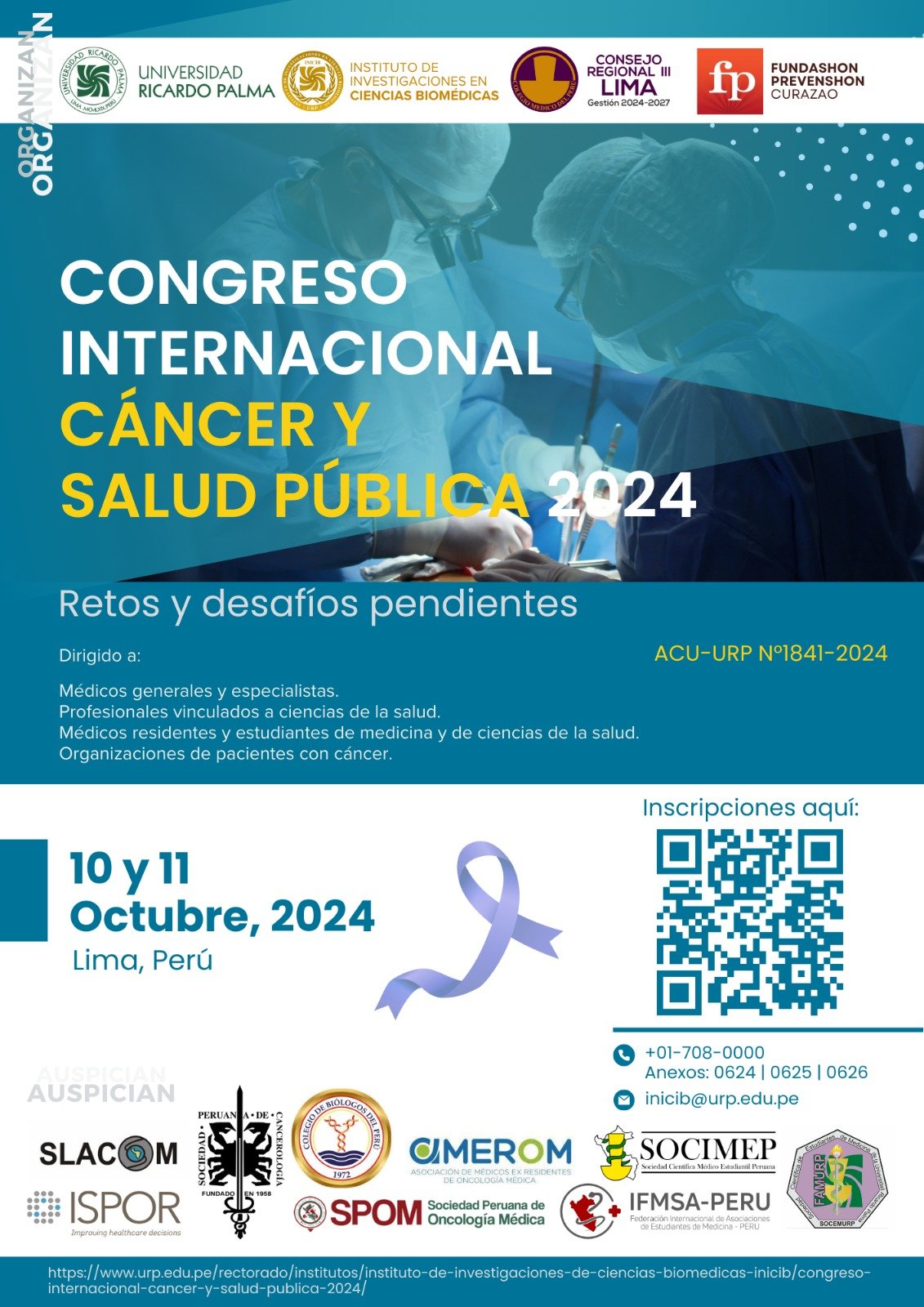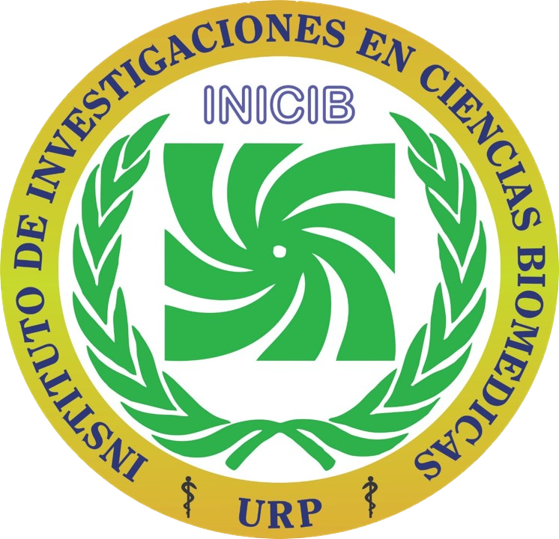Liquid Biopsy in Oncology: Myth or Reality?
Biopsia Líquida en Oncología: ¿Mito o Realidad?
DOI:
https://doi.org/10.25176/RFMH.v20i1.2643Abstract
One of the most relevant challenge in oncology would be the ability to deeply know tumoral genetic aspects through technological innovation and translational research to be finally able to personalize oncological treatment based not only on classical patient’s clinical characteristics but also on its tumoral genetic portrait. In the last few years, many studies showed that to select cancer patients for a specific drug on the basis of specific genetic alterations could determine the greatest potential clinical benefit for a longer time, compared to treatment with the classic cytotoxic chemotherapy. Thus, oncology moves from the classic "one size fits all" approach, which provided classic chemotherapy agents on the basis of the cancer primary site and its histological type, to a new classification based on the tumor molecular profile. The characterization of the genetic alterations of the tumors, and the understanding of the complex interaction between the molecules of the same network represents, therefore, the rationale on which precision medicine is based. These advances have been made possible by the recent development of new technologies, such as next generation sequencing (NGS) or massive parallel sequencing (MPS), which allow the sequencing of larger gene portions compared to previous technologies, with reduced times and an increase in analytical sensitivity.
Downloads

Downloads
Published
How to Cite
Issue
Section
License
Copyright (c) 2020 Revista de la Facultad de Medicina Humana

This work is licensed under a Creative Commons Attribution 4.0 International License.


